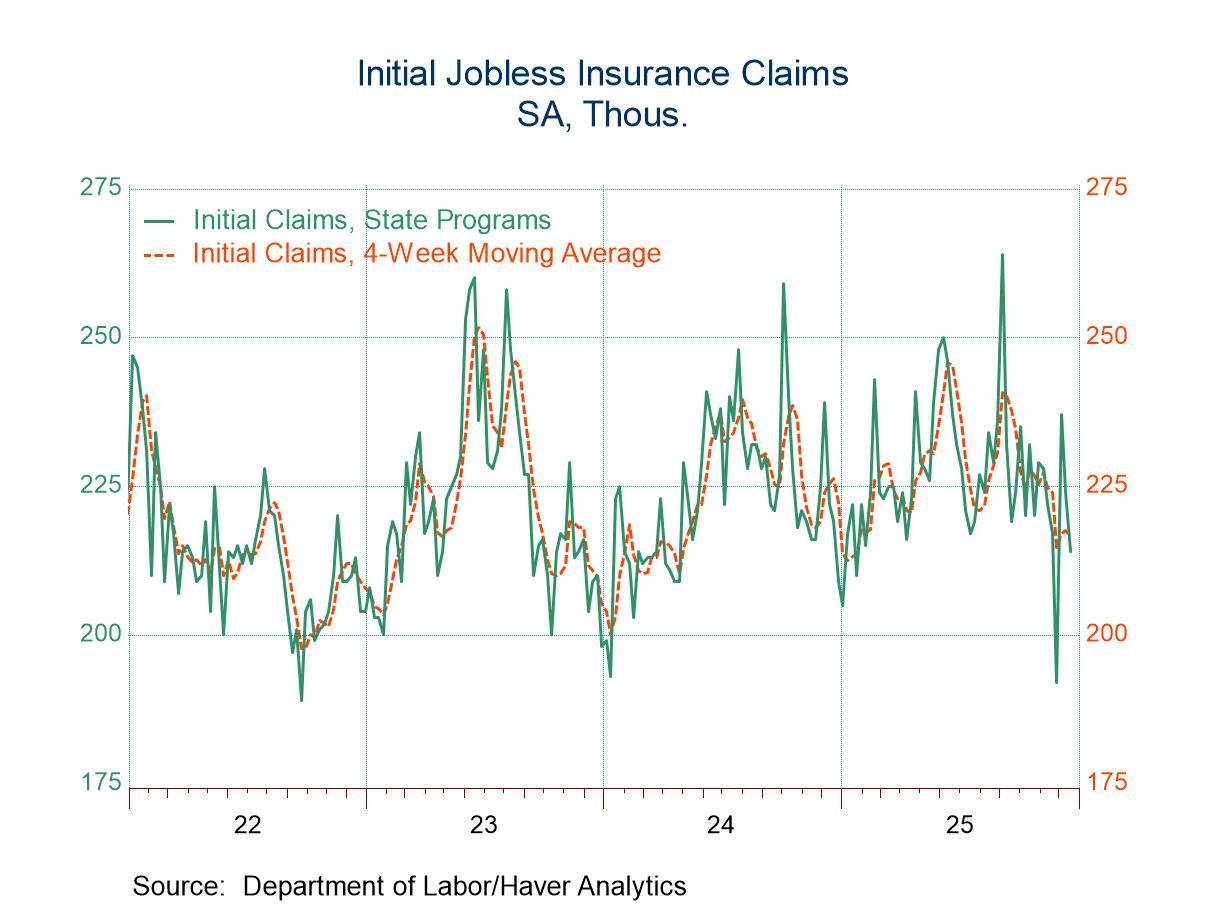U.S. Consumer Prices Jump Again in February
by:Tom Moeller
|in:Economy in Brief
Summary
- Annual gain remains strongest since 1982.
- Energy prices surge with Ukraine conflict; food prices accelerate.
- Services prices pick up as core goods prices ease.


Price gains have ramped up as consumers remain flush with earnings and the external shock delivered by rising energy prices hits the economy. As the Action Economics Forecast Survey predicted, the Consumer Price Index rose an accelerated 0.8% during February. The 7.9% y/y rise was the largest since January 1982. Core price inflation eased m/m. Also matching expectations, last month's 0.5% price rise followed two straight 0.6% gains. The 6.4% y/y increase, nonetheless, was the strongest since August 1982.
Energy prices were strong in February, surging 3.5% (25.6% y/y). Gasoline prices jumped 6.6% (38.0% y/y) to the highest level since October 2012. They have since risen to a record level. Fuel oil prices also surged 6.5% (33.4% y/y) and the cost of natural gas strengthened 1.5% (23.8% y/y). Electricity prices fell 1.1% (+9.0% y/y).
Food inflation ratcheted up again last month with prices rising 1.0% (7.9% y/y). Fruit & vegetable prices jumped 2.3% (7.6% y/y) while egg prices rose a steady 2.2% (11.4% y/y). Dairy product costs surged 1.9% (5.2% y/y). Meat, poultry & fish prices gained 1.2% (13.1% y/y) and nonalcoholic beverage prices strengthened 1.6% (6.7% y/y). Cereal & bakery product prices gained 1.1% (7.8% y/y). Food prices away from home rose 0.4% (6.8% y/y).
Services prices rose 0.5% (4.4% y/y), the quickest increase since April of last year and up from a 0.1% August uptick. The cost of public transportation surged 3.5% (8.3% y/y), twice the January increase. Owners' equivalent rent of primary residences increased 0.4% for the sixth straight month. The 4.3% y/y increase was more than twice the gain early last year. Rents of primary residences surged 0.6%, and the 4.2% y/y gain compared to 1.8% y/y in the spring of 2021. The cost of lodging away from home rose 2.2% (25.1% y/y). Offsetting these stronger increases was a lessened 0.1% rise (2.4% y/y) in the cost of medical care services. Recreation services prices rose a steady 0.6% but the 5.1% y/y gain was a record in the 10-year life of the series. Education prices improved a steady 0.1% (1.7% y/y).
Goods prices excluding food & energy rose a greatly moderated 0.4% (12.3% y/y) in February. Price changes within categories were mixed. Household appliance prices rose a lessened 0.7% (7.3% y/y) while furnishings prices rose a halved 0.8% (10.3% y/y). Apparel prices increased a lessened 0.7% (6.6% y/y). New vehicle prices rose 0.3% (12.4% y/y), but used car & truck prices eased 0.2% (+41.2% y/y) after strong gains in the prior four months. Recreational product prices rose 0.9% (4.6% y/y) while medical care product prices improved 0.3% (2.5% y/y). Education & communication product costs fell 0.7% last month (0.3% y/y).
The Consumer Price Index data can be found in Haver's USECON database with additional detail in CPIDATA. The Action Economics survey figure is in the AS1REPNA database.
Indirect Consumer Inflation Expectations from the Federal Reserve Bank of Cleveland is available here.


Tom Moeller
AuthorMore in Author Profile »Prior to joining Haver Analytics in 2000, Mr. Moeller worked as the Economist at Chancellor Capital Management from 1985 to 1999. There, he developed comprehensive economic forecasts and interpreted economic data for equity and fixed income portfolio managers. Also at Chancellor, Mr. Moeller worked as an equity analyst and was responsible for researching and rating companies in the economically sensitive automobile and housing industries for investment in Chancellor’s equity portfolio. Prior to joining Chancellor, Mr. Moeller was an Economist at Citibank from 1979 to 1984. He also analyzed pricing behavior in the metals industry for the Council on Wage and Price Stability in Washington, D.C. In 1999, Mr. Moeller received the award for most accurate forecast from the Forecasters' Club of New York. From 1990 to 1992 he was President of the New York Association for Business Economists. Mr. Moeller earned an M.B.A. in Finance from Fordham University, where he graduated in 1987. He holds a Bachelor of Arts in Economics from George Washington University.






